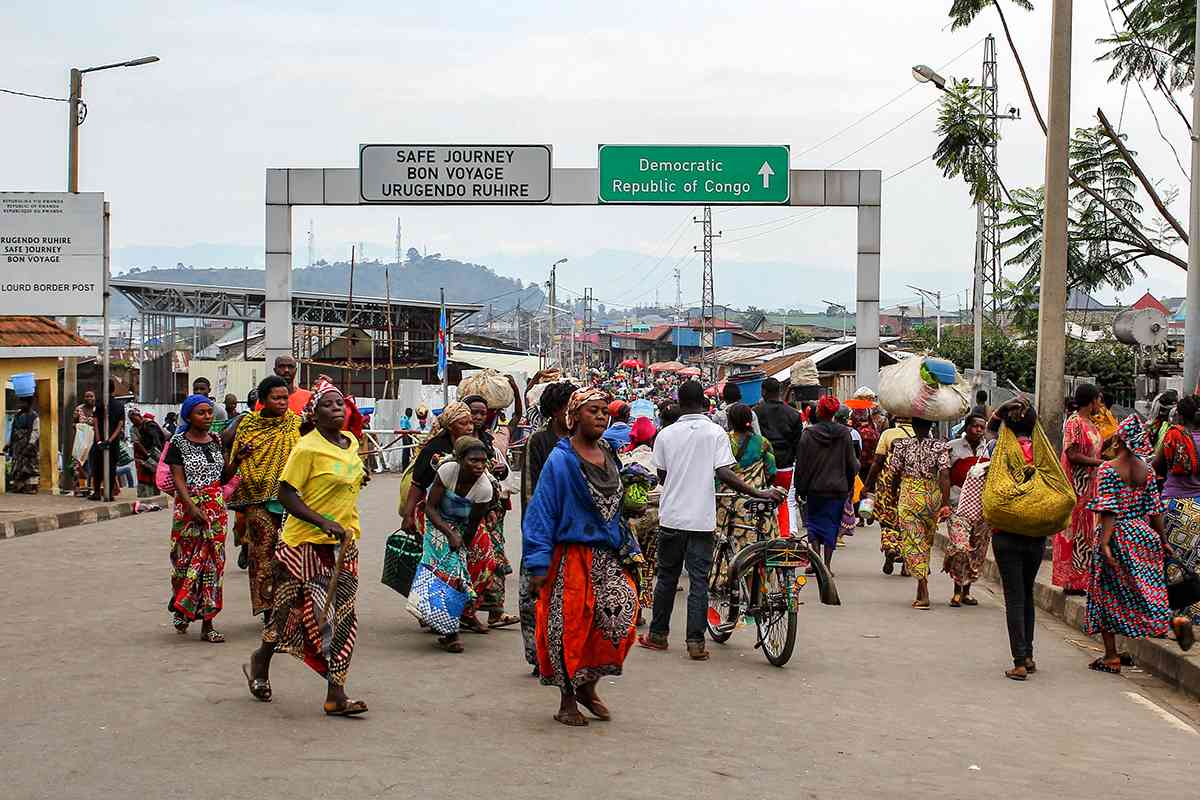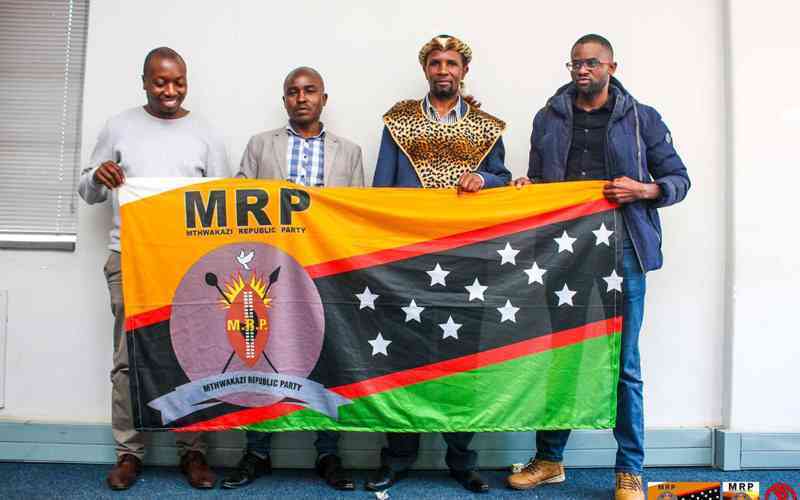
In a historic peace deal signed Friday, leaders of DRC and Rwanda agreed to end a yearslong war that largely played out in North Kivu and South Kivu provinces along the eastern edge of DRC.
But people here say the agreement is far from a guarantee that violence in their region will end. In fact, many say, it’s the Congolese people who will ultimately lose out yet again, as the deal allows the United States government and US investors more access to DRC’s vast mineral stores. DRC is one of the leading producers of cobalt, copper and coltan, materials that are essential for the technology industry and energy transition.
“DRC remains the loser,” says Espoir Kitambala, a political analyst and lecturer at the Kirumba Higher Institute of Education. “The integrity of the territory remains at stake.”
The agreement also requires that DRC and Rwanda end support for non-state armed groups. But Congolese residents are skeptical that M23, the Rwanda-backed armed group, will vacate the areas they control, which include Goma, the capital of North Kivu province, or Bukavu, the capital of South Kivu province. M23 overran those cities in January and February, respectively. The group is responsible for widespread atrocities throughout both provinces — violence that has led to the displacement of at least 1.2 million people overall, as well as thousands of deaths this year alone. Now, it has set up parallel territorial administrations and local governments. Meanwhile,the humanitarian situation is becoming increasingly serious, with assassinations, multiple human rights violations, and looting increasing daily. The region is among the world’s most violent; approximately 6 million people have died due to multiple conflicts since 1996.
“We ask the signatories of this agreement to respect their commitments, otherwise peace will remain a dream in the Great Lakes region,” says Muhindo Tafuteni, a civil society leader in Lubero territory north of Goma.
But others say that’s already not a reality. Thanks Kahindo, 27, a student, says M23 members came to her church after the agreement was signed and said that people must unite and avoid tribalism.
“Their language shows that they are not ready to leave,” she says.
The agreement notes that there are negotiations underway in Doha, Qatar between DRC and AFC and M23. (AFC is an acronym for the Congo River Alliance, an armed group, while M23 stands for the March 23 Movement.) The timeline of those negotiations — and any details about them — haven’t been made public.
- DRC-Rwanda Peace Pact Sparks Hope and Skepticism
Keep Reading
A coalition of 80 Congolese organizations known as the Mobilization for the Safeguarding of Congolese Sovereignty and Autonomy excoriated the agreement, calling it a “business deal among powerful interests, couched in terms of peace in order to sell it to the international community.”
The deal was not developed democratically, the coalition said in a statement to Global Press Journal. It was “promoted, negotiated and concluded from the top down, by self-interested politicians wishing to retain their power and wealth,” the statement reads.
Some hope, but skepticism is widespread
Despite widespread skepticism, some Congolese are hopeful.
Kabuyaya Matayo, 80, remembers the suffering of June 29, 2024, the day the M23 took control of Kirumba, about 100 kilometers (62 miles) north of Goma. That was months before M23 took Goma and Bukavu. Then, suffering worsened as people
were killed in cold blood in the streets, repeating what had happened multiple times in previous decades.
Now, Matayo is glued to his radio so as not to miss any news.
“When I heard about this agreement on the radio, I told myself that peace will return,” he says. “Since it’s America that got involved in this, if it’s not hypocrisy, the results will definitely be satisfactory. We’ve already suffered a lot. We can’t wait to see peace.”
Kavira Kihundu maintains the same hope but emphasizes that the peace needed cannot be measured by a simple agreement. A concrete end to violence will be the final measure of success, she says.
“We want these Rwandan soldiers who are occupying our territories to withdraw. If that happens, we will thank the American president,” she says.
That’s unlikely to happen, says Mumbere Malolero, who at the age of 71 has seen decades of violence at the hands of myriad armed groups, many of which also depended on Rwandan support.
M23 “will say that this agreement doesn’t concern them,” she says.
“Since it's America that got involved in this, if it's not hypocrisy, the results will definitely be satisfactory. We've already suffered a lot. We can't wait to see peace." Kabuyaya Matayo
Salomon Kakule Kaniki, spokesperson for the International Circle for the Defense of Human Rights, Peace and the Environment, is also among the skeptical.
“The agreement doesn’t even mention the damage caused by Rwanda in this war, such as looting, rape and the killing of civilians,” he says.
Kitambala, the political analyst, says the agreement would be valid if it included measures such as the reorganization and coordination of the army, efforts to end corruption, a plan for economic integration and more.
It’s the terms related to mineral rights that are of most concern to many Congolese. It’s an outrage, says Kasereka Ndamasani, 36, a farmer, echoing the feelings of many people in the region.
For generations, people here have been stripped of even minimal access to the benefits of the riches hidden in the hills.
“We, the ordinary people, don’t even benefit from the advantages of these minerals. Peace is enough for us,” Ndamasani says.
“There’s nothing to indicate that this armed group will withdraw,” says Kahambu Mulavi, a resident of Kirumba.
The group has always promised that it will advance to Kinshasa, the capital city in the country’s far west, she says. “I’ll believe in this agreement when I see the troops leaving.”










